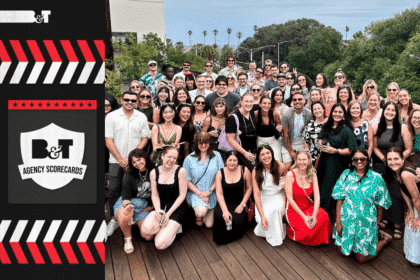Whether we know it or not, every one of us has encountered at least one piece of fake news or misinformation online, but now, with the rise of AI, the onslaught of false information is going to get exponentially worse. In this op-ed, Chris Couchman, head of content at Readly, unpacks the very real threat of fake news and misinformation in the lead-up to one of the most prominent elections in history.

Ahead of the US elections, the Reuters Institute has reported the proliferation of high-quality, high-profile examples of deepfake material portraying political candidates, including Donald Trump and Kamala Harris, attempting to misinform or scam voters.
A survey commissioned by Readly found that people all around the world were concerned about the rise of AI and its effects on the spread of misinformation and disinformation. The YouGov survey found that 44% of Brits were ‘very concerned’ about the spread of fake news and only 10% of Americans believed AI should be put to work in the news business.
Without trained and dedicated fact-checkers and reporters, media consumers have no hope of discerning what is true or false in this post-truth world. Now more than ever, there is a critical need for credible journalistic content to uphold objectivity and restore trust in the institutions we rely on as a society.
The value of credible journalism is clearly evident. But the truth is, quality reporting – whether it’s deep investigative work, diverse media coverage, or local journalism – requires resources. If we continue to expect unlimited, free access to quality journalism we end up perpetuating a system which prioritises clicks over substance. Accuracy is sacrificed for speed, and balance is overlooked in favour of rage-bait.
While this era of generative AI has been regarded as an unstoppable force, it is unquestionable that we are living in a dangerous era where the lack of media literacy and the sophistication of technology can mean that even the most clued-in news consumer can be easily fooled by fake news. The term which was once popularised by Donald Trump has now entered the common vernacular as an all-too-casual name for a sinister and damaging phenomenon where alternative facts, misinformation, and disinformation reign supreme.
Thanks to social media, anyone can post a story online; without fact checkers, these stories spread like wildfire which ultimately leads to the spread of conspiracy theories and hate speech. Fake news and disinformation is easy to ignore, but over time accepting its presence not only undermines the democratic process but creates distrust in institutions like the government and media.
Fake news written up as clickbait headlines have been classified as either disinformation which is deliberately spread or misinformation which is innocently spread. According to fake news expert Dr. Greg Nyilasy of the University of Melbourne, “Humans are generally very bad at detecting fake information…because fake news often looks like real news – and we think we recognise a pattern.”
Add in the natural instinct to share more bad news than good news and we have a situation where everyone is susceptible to being misled by what they see online. How big is the problem? Data shows that in 2024 a third of consumers surveyed in selected countries worldwide have seen false news about politics. About a third had also witnessed false information about COVID, 28% saw fake news on the cost of living crisis and 27% were exposed to lies about the Israel-Palestine conflict.
According to the IMS, 70% of the world’s young people are online. In Australia 4 in 10 children and 6 in 10 teens say they often or sometimes get their news from social media. In Denmark, half of 12-year-old kids receive news through social media, similar to the rest of the world.
Thanks to AI, ‘misinformation superspreader’ events are increasing in frequency with some websites generating hundreds if not thousands of articles a day. In 2023, platforms hosting AI-generated false articles increased by 1000% from 49 sites to more than 600.
To effectively combat the rise of misinformation, it’s not enough to simply consume quality journalism — we need to actively engage with it. Discussing credible news and societal issues with family and friends plays a crucial role in building our collective resilience to misinformation.
A UK IPSOS poll commissioned by Readly found that 1 in 4 Brits commonly discussed news or articles from papers and magazines at their family gatherings and Christmas dinners. But close to a third said discussing politics most often led to destructive arguments during the holidays.
Though many understandably want to avoid them, these conversations provide an opportunity to cross-check facts, share insights, challenge questionable sources, and make it easier for us to spot red flags. The key is to be curious, not confrontational. Having a sense of humour and not shying away from important topics is helpful too.
By doing so, we not only strengthen our own media literacy but also help others become more discerning consumers of news. Ultimately, consuming and discussing high-quality journalism will help the media defend the truth in an era of misinformation.
We must continue to foster critical thinking by exchanging diverse perspectives and never waver in our commitment to objectivity. Young and old, the fake news scourge is worming its way into every household and the only fix is to restore journalism to its rightful place. To this end, we must accept that supporting journalism means paying for it. If we genuinely want to safeguard the truth in the media, it’s time to acknowledge its worth and invest in it.








